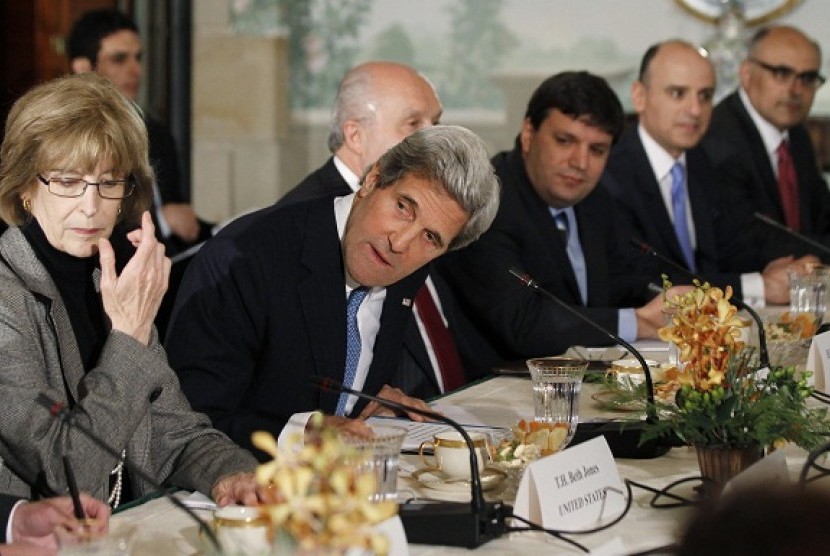REPUBLIKA.CO.ID, JERUSALEM - The Arab League's decision to sweeten its decade-old proposal offering comprehensive peace with Israel has placed Prime Minister Benjamin Netanyahu in a bind and swiftly exposed fissures in his new government.
Netanyahu's chief peace negotiator on Tuesday welcomed the modified Arab proposal, while the prime minister remained silent, reflecting the internal divisions that lie ahead as the US tries to restart long-frozen peace talks with the Palestinians.
"This is a positive announcement," negotiator Tzipi Livni told Channel 10 TV, adding it gave "tail wind" to peace efforts. "At the end you need a direct negotiation between the Israelis and the Palestinians."
The original 2002 Arab peace initiative offered Israel peace with the entire Arab and Muslim world in exchange for a "complete withdrawal" from territories captured in the 1967 Mideast war. The Palestinians claim the West Bank, east Jerusalem and the Gaza Strip, all seized by Israel in 1967, for their future state.
The initiative was revolutionary when it was introduced by Saudi Arabia's then crown prince, King Abdullah, and endorsed by the 22-member Arab League. The 57-member Organization of Islamic Cooperation later endorsed the plan as well. However, it was overshadowed by fierce Israeli-Palestinian fighting at the time and greeted with skepticism by Israel.
In Washington Monday, Qatari Prime Minister Sheik Hamad Bin Jassem Al Thani tried to allay some of the Israeli concerns. Speaking on behalf of an Arab League delegation, he reiterated the need to base an agreement between Israel and a future Palestine on the 1967 lines, but for the first time, he cited the possibility of "comparable," mutually agreed and "minor" land swaps between the Israelis and the Palestinians.
Sheik Hamad spoke after talks with Vice President Joe Biden and US Secretary of State John Kerry, who has been pushing Arab leaders to embrace a modified version of the Arab peace plan as part of a new US-led effort to corral Israel and the Palestinians back into direct peace talks. The changes are meant to win Israeli support by allowing it to keep parts of the West Bank and east Jerusalem as part of an agreement.
In Washington, Kerry called the changed language a "very big step forward."
"This is literally a statement by the Arab world that they're prepared to make peace, providing the Palestinians and Israelis reach a final status agreement," he told reporters Tuesday at the State Department after meeting Spain's foreign minister.
While the Palestinians voiced objections to modifying the Arab League plan, their chief negotiator, Saeb Erekat, said Tuesday that the Palestinians supported the new proposal.
"Israeli rejection of this initiative shows once again that the Israeli government lacks of a peace plan," he said in a statement. "Rather, it is fully engaged in further colonization and attacks against Palestinian rights and regional stability."


